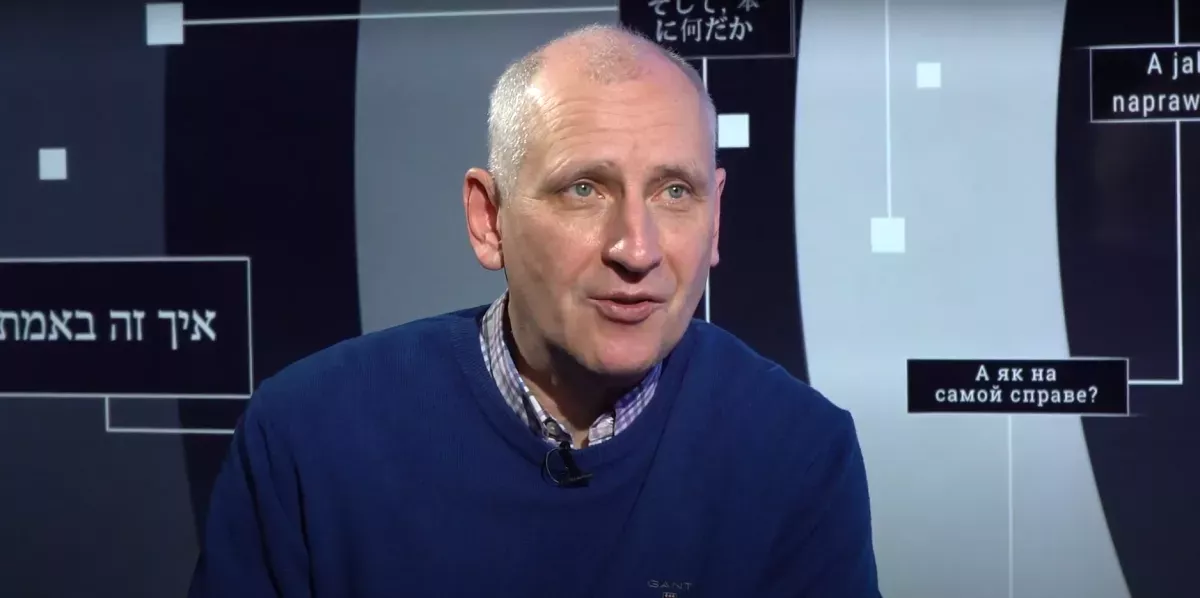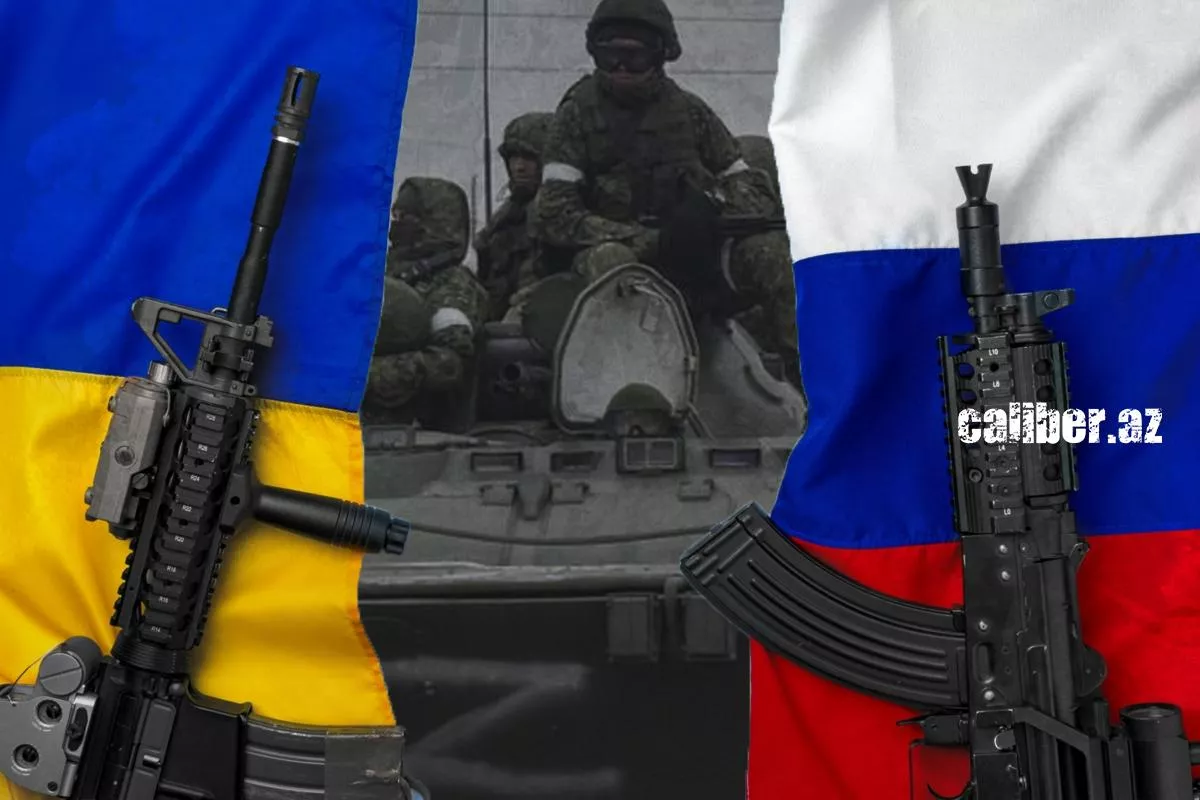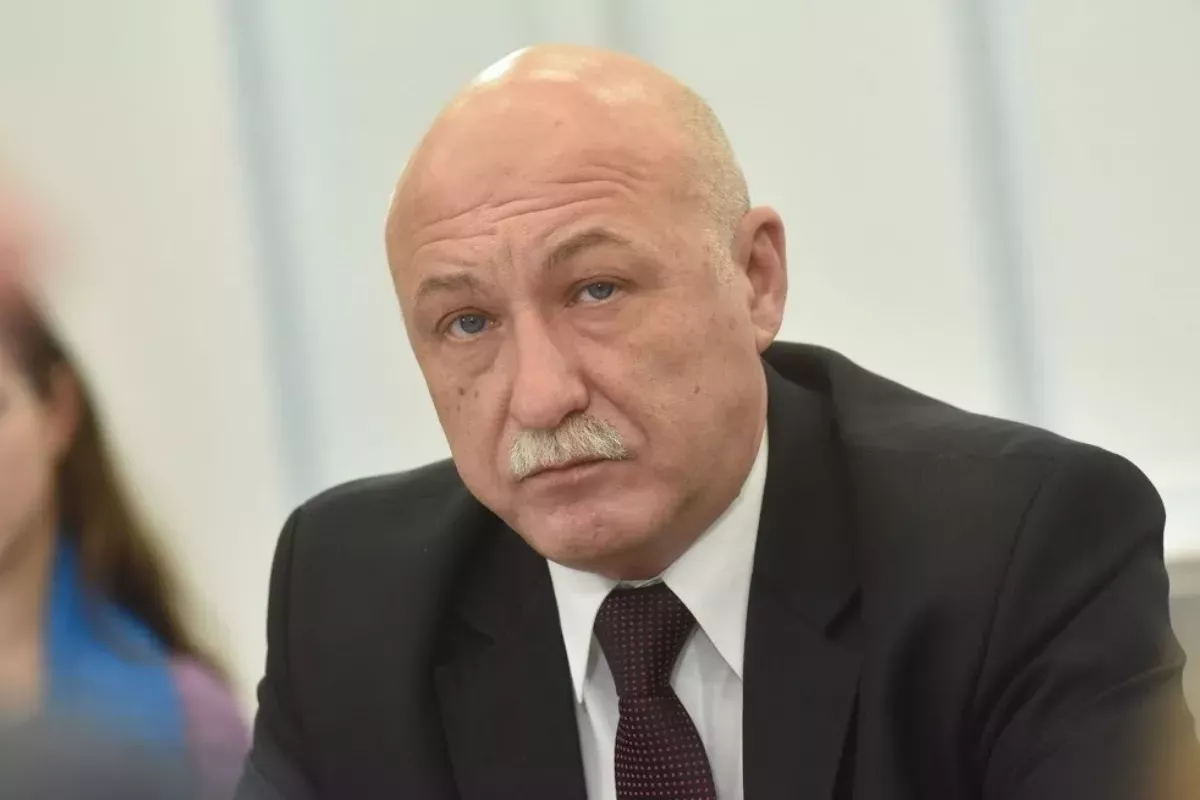Russia-Ukraine war: Could Trump, Zelenskyy, and Putin find a way out? Experts analyse
U.S. Presidential Special Envoy Keith Kellogg expressed hope that the next Ukrainian Independence Day, on August 24, will be celebrated in peace, RBC-Ukraine reports.
He said all parties are "working very seriously" on the peace process and added that it may soon be possible to "reach security guarantees," which remain under discussion.
Kellogg emphasised that Ukraine is experiencing the largest conflict in Europe since World War II.
"Consider the scale of destruction and devastation, the harm and damage caused by these actions. I sincerely hope that next Independence Day will be a true celebration—a celebration of a free and peaceful Ukraine," he said.
What lies ahead for the peace negotiations? Will a meeting between Zelenskyy and Putin take place? Are there conditions under which Russia might end the war?
Caliber.Az asked prominent Ukrainian analysts to weigh in on these questions.

Security and defence expert, retired Colonel of Ukraine’s Security Service Oleg Starikov, notes that the prospects for the negotiation process are extremely uncertain.
“This is all tied to the uncompromising positions of the conflicting parties. Even meetings in Alaska and Washington have failed to lead to a resolution.
Economically, Ukraine cannot withstand this war alone. We see that some European countries are increasingly distancing themselves from supporting Ukraine and financing the EU special fund and the ‘Ramstein’ coalition.
At present, based on the statements of the parties and interested actors, there are no strong prerequisites for a peaceful settlement. What we have are only fragmentary pieces of information. For example, a few days ago, Trump gave Russia a new two-week deadline for a peace agreement. This appears to relate to discussions with the Russians on nuclear disarmament. Public statements by European and Russian leaders remain fragmented and inconsistent.
For the President of France, the UK Prime Minister, and the German Chancellor, it is not unusual to adjust their positions—whether on a peacekeeping contingent in Ukraine or on security guarantees, which have still not been agreed upon more than three and a half years since the Russian invasion began.
Moreover, the issue of guarantees has been relevant not since 2022, but since 2014, when it became clear that the Budapest Memorandum was not working. It is unlikely that anything can be agreed upon in 7–10 days if it has not been achieved in 11 years. We can only note an intensification of consultations on a settlement, but it is worth emphasising: only two states—Ukraine and Russia—maintain clear and unwavering positions. Since 2014, these positions have not overlapped on anything except humanitarian issues.
Under Trump’s new deadlines and the broad European discussion on security guarantees—which involves Canada, and is drawing interest from China, Japan, South Korea, and even Iran—Europe is more likely to agree on purchasing arms from the U.S. for itself than on providing real guarantees to Ukraine. Meanwhile, Russia is rapidly expanding its military-industrial capabilities and shifting its economy to a war footing.

“Therefore, I am left with a well-founded impression that the so-called peace process is nothing more than a cover for preparing a large-scale military confrontation, possibly even a world war,” the expert stated.
Regarding a possible meeting between Zelenskyy and Putin, Starikov suggests reframing the question: what would such a meeting actually change, even if it takes place?
“There are no reasons for either Putin or Zelenskyy to meet while there is not even a partial convergence of positions. At present, none exists. Both leaders fear the meeting could be used against them. Putin is especially cautious, insisting on a carefully coordinated agenda and privately speaking of ‘surprises’ from Zelenskyy.
Zelenskyy risks an internal uprising from far-right factions, who would instantly accuse him of ‘collaborating with Putin’ if he does not return from the summit with a result capable of mitigating that risk. Yes, a meeting could occur under pressure from Trump, but both sides express willingness while knowing that, in the foreseeable future, there will likely be no summit. And if there is, it will more likely be a show than an effective tool for settlement,” Starikov believes.
He adds that Putin’s actual intentions remain a mystery.
“After eleven years of armed conflict with Ukraine, the Kremlin has yet to disclose the ‘objectives of the Special Military Operation,’ but claims that the operation will end once they are achieved. Indirect signs suggest that Putin seeks to restore the socialist bloc in Eastern Europe, reclaim the former German Democratic Republic (GDR), and bring parts of the post-Soviet states back into Russia’s orbit. The motivation is surprising: it turns out that Putin was ‘misled’ about NATO in the early 2000s!”
This version is partially corroborated by the German press, which criticises Germany for not admitting the renewed democratic Russia into NATO. This explanation sheds light on many statements from the Russian side: interest in “Novorossiya,” references to the “betrayal” in Istanbul 2022, and the rewriting of the nuclear doctrine with threats of a continental war. Trump is taking these threats very seriously.
In Russia, there are indeed influential circles that want to reach an agreement with the U.S. and repeat the “thaw” of the late 1980s. They welcome Putin’s negotiations with Trump, but they could be gravely mistaken.
Right now, it is disadvantageous for Putin to end the war. He is forming a military-political bloc as a counterweight to NATO and cannot show even the slightest weakness to his allies. Even if he wanted to stop the war, the Russian economy has already been partially shifted onto a military footing. A sudden reversal would trigger a crisis so severe that the collapse of Russia would seem like an easy scenario. Both the pro-Western circles and the business elite oriented toward American investments understand this.
The true goals of the “special military operation” raise questions even for China. Therefore, even if a ceasefire were agreed upon, Russia’s military machine would continue to operate — including on Ukrainian territory.
By publicly agreeing to peace, Putin sets terms that are inherently unacceptable to Kyiv. For now, the game of “who is the main aggressor” continues. This is merely a smokescreen. Even if a peace agreement were signed, Ukraine’s security would not be guaranteed, and a foreign contingent could become the cause of a new, far bloodier outbreak of conflict,” concludes Starikov.

Military expert Pavlo Lakiichuk from Kyiv’s “Strategy XXI” centre noted that Kellogg’s statements sound encouraging but do not provide real grounds for optimism.
“Today, Kit Kellogg acts as the U.S. president’s special representative for Ukraine. Nothing less, but nothing more. He conveys the thoughts of President Trump. Yesterday, in a conversation with journalists, Trump said: ‘There has been no war of this scale since World War II. This is the greatest event in the history of military affairs. It is a completely new form of conducting combat. This is a war using drones, which we have never seen before. And we are studying it — Pete Hegseth and everyone else…’ And that is indeed the case.”
But can Trump stop this “greatest war since World War II”? He positions himself as a mediator who can extract concessions from Putin and then pressure Zelenskyy into ceding part of Ukraine and striking a “Big Deal” with the aggressor. At the same time, he occasionally speaks as an ally of Ukraine, promising to protect it from future attacks.
President Zelenskyy, in Washington after meetings with Trump and European leaders, expressed his readiness for a bilateral meeting without preconditions: “I confirmed — and all European leaders supported me — that we are ready for a bilateral meeting with Vladimir Putin, and after that we expect a trilateral (Ukraine-Russia-U.S.) meeting,” the analyst recalled.
He raises the question: Is Putin ready for such a meeting?
“Could Putin agree to a bilateral meeting even if Zelensky theoretically came with an ‘act of unconditional surrender’? No. From Putin’s point of view, Zelensky is no match for him. All talk of a bilateral meeting between the presidents of Russia and Ukraine is, for the Kremlin, ‘talk for the poor.’
By what miracle could Russia give up its continuation of the conquest war? Putin might agree to a meeting in the format of Putin–Trump–Xi — a sort of ‘Minsk-3,’ where the Ukrainian president signs a surrender. But for such a grand theatre, the Kremlin needs a ‘grand victory in Donbas,’ something akin to the ‘Debaltseve cauldron,’ but on a strategic scale. This was precisely the task set for Gerasimov and his circle during the ‘great summer offensive.’
Summer is ending, and there is no strategic success. The Russian army has tactical gains on certain parts of the front, but you cannot sell them as a ‘strategic victory.’ Although anything is possible, since autumn is still ahead,” concluded Lakiichuk.








